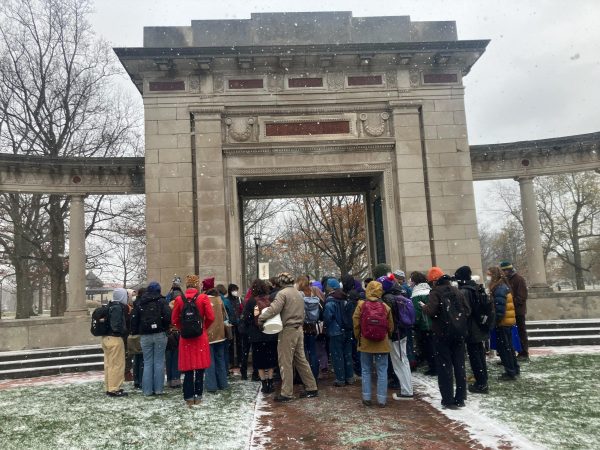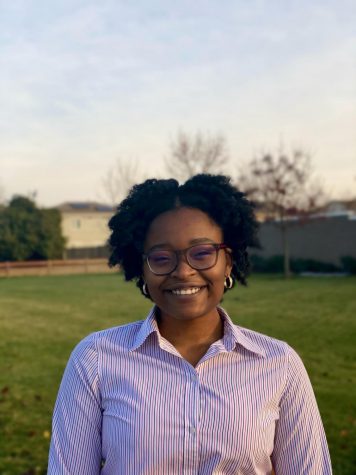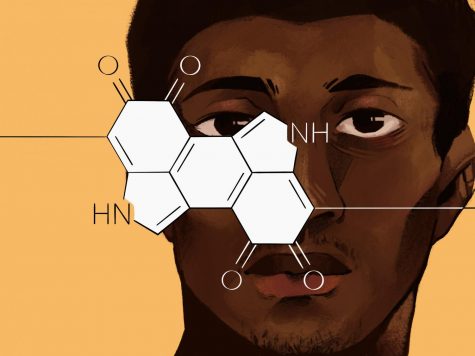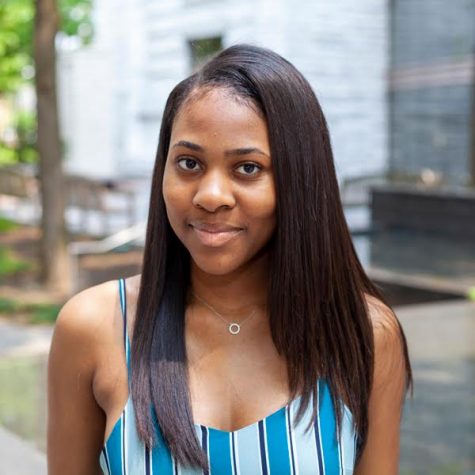Off the Cuff with Mowa Badmos
Mowa Badmos, College fourth-year, is a Psychology major whose research in the lab of Professor and Chair of Psychology Nancy Darling has focused on adolescent relationships, parenting, and mental health. Here she shares some of her experiences as a Black woman in STEM at Oberlin, the obstacles she’s overcome, and the impact she’s made on campus.
This interview has been edited for length and clarity.
What STEM-related activities have you been involved in? How has that impacted your personal growth?
I’ve served as an Oberlin Workshop and Learning leader for Organismal Biology; an Oberlin College Research Fellow and research assistant for Professor Nancy Darling; a Center for Learning, Education, And Research coordinator; and as a Howard Hughes Medical Institute Student Leadership Committee member. These roles have made me a more organized and focused individual — particularly working for CLEAR both as an OWL and a coordinator. I have had to manage my time in both roles in vastly different ways that have allowed me to grow significantly. Also, my research work over the summer and during the semester has enabled me to get over some of my presentation anxiety, making me a more confident speaker.
How did you gain interest in STEM?
I had always been interested in STEM. Some of my earliest memories include asking my parents to buy me a book of experiments because I was intrigued. So that interest was definitely always there, but, growing up, what set STEM apart from other things for me is the challenge it provides. I am not the most mathematically inclined person, so it is honestly a little bit more difficult for me than the average STEM student. But the joy I get from figuring something out after trying over and over again is one I have not gotten anywhere else.
What aspects of STEM intrigue you specifically?
What intrigues me the most is the never-ending learning. There is always something to figure out — always something new to learn, or something I had never thought of — and now I have the means to research and learn from the professionals. I personally enjoy having random tidbits of knowledge and STEM is perfect for that.
How has college fed that passion?
By opening me up to the possibilities I never knew existed. If you had told high school me that I would have conducted research on adolescent romantic relationships, I would have never believed you — simply because I had no idea that it was something that could be studied. Interacting with professors and other students has let me know the possibilities are endless.
What difficulties have you encountered so far? How did you overcome them, or how are you working to overcome them?
As I previously mentioned, I’m not the best at math, so that has been a difficulty. When it comes to reading papers, it takes me a little longer to grasp most concepts, so that definitely slows me down. A way that has been helping me overcome them is seeking help — be it from the professor, a teaching assistant, or the internet. I find support one way or another, because I simply can’t do it all on my own. Another way is just giving myself grace and the space to not be perfect. By simply allowing myself more space to acknowledge that it will take me longer to learn the material, the difficulties aren’t as daunting, because I know eventually I will be able to do it just like everyone else in the class.
Have you experienced imposter syndrome? If so, how did you overcome that?
I have definitely experienced imposter syndrome. I think in every STEM role and class I have had I’ve experienced it. Overcoming it for me includes reminding myself that I am here for a reason and I have my own experiences to add to the field. And in the moments when I can’t provide that support for myself, I ask a friend to do it for me. Either way, encouragement goes a long way.
Do you think the college is doing anything to make involvement in STEM lucrative for people of color and minorities?
Having been a part of the HHMI committee and working as a CLEAR coordinator, I know the college is trying its best to increase representation and better the experiences of POC in STEM. There is also OCRF, the Oberlin College Research Fellowship, which provides the opportunity for POC students to conduct research for the summer. It is open to international students, which I love, and is a paid opportunity, making it even better.
Is there anyone, whether in STEM or not, that serves as your inspiration?
Yes! Akwaeke Emezi, a nonbinary trans Nigerian-Tamil author. They inspire me not only because of their impeccable writing but because they are unapologetically and transparently themselves.






